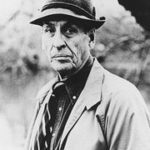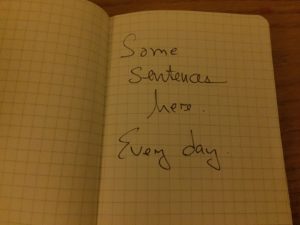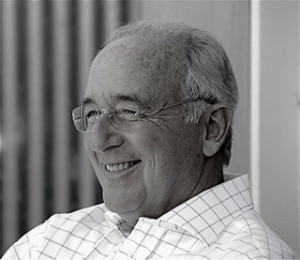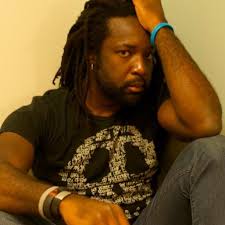
Nov. 6, 2016 – Nell refuses to cede the writing chair. At least she no longer eats my manuscript pages.


Nov. 6, 2016 – Nell refuses to cede the writing chair. At least she no longer eats my manuscript pages.
https://www.youtube.com/watch?v=IIEVqFB4WUo
Nov. 5, 2016 – Because Saturday. And because I’ve got all day to whip this manuscript into shape. Whippin’ it good!

 Nov. 4, 2016 – It’s full dark when I get to the coffeeshop in the morning, full light when I leave. But this morning, I glanced up and caught the fleeting remnants of sunrise, a time when, according to Norman Maclean, “everything is luminous but not clear.” Chew on that awhile.
Nov. 4, 2016 – It’s full dark when I get to the coffeeshop in the morning, full light when I leave. But this morning, I glanced up and caught the fleeting remnants of sunrise, a time when, according to Norman Maclean, “everything is luminous but not clear.” Chew on that awhile.

 Nov. 1, 2016 – On the walls of the coffeeshop where I write – portraits of Ursula K. LeGuin and Shirley Jackson. And, on the table in front of me, at least as important – the perfect latte. Thanks, Clyde Coffee.
Nov. 1, 2016 – On the walls of the coffeeshop where I write – portraits of Ursula K. LeGuin and Shirley Jackson. And, on the table in front of me, at least as important – the perfect latte. Thanks, Clyde Coffee.
 Deadline convergence! Proofs due on a short story for an anthology. Post due for International Thriller Writers‘ Thrill Begins site. Proofs for Book 4, RESERVATIONS, to land in my inbox tomorrow. And, in the Day Job, the election locomotive is bearing down. So long, sleep.
Deadline convergence! Proofs due on a short story for an anthology. Post due for International Thriller Writers‘ Thrill Begins site. Proofs for Book 4, RESERVATIONS, to land in my inbox tomorrow. And, in the Day Job, the election locomotive is bearing down. So long, sleep.
Oct. 20, 2106 – A very long time ago, at a holiday party thrown by the Montana Kaimin (the University of Montana’s student newspaper), I drew a “Booty Mix” CD as my gift. With such classics as Do Me!, The Humpty Dance, Push It and of course Da’ Butt, it remains some of my best writing music. Dialed it up yesterday and got more work done than I have in weeks.

Oct. 29, 2016 – That moment when you realize the relatively simple solution to the manuscript’s major issue.

With apologies to Master of the Form Chris LaTray, to my brother, and to any and everyone else who’s been doing this for years, I’m giving it a shot – mainly because I’m such an inconsistent blogger.
But a single sentence! Anyone can manage that, right?
It’s right in line with my theory of writing a novel. Stripped down to its barest minimum, even if you only write a sentence a day, after enough (OK, many, many, many) days, you’ll have a first draft. Me, I shoot for 500 words a day toward a first draft when I’m also working a day job, 1,000 words if I’m gainfully unemployed.
I’ll put that discipline to the test in January, when I start a new book. But before then, a couple of dreaded deadlines loom – the copy edits on my fourth novel, RESERVATIONS, out in March, and the manuscript for my fifth, at this point imaginatively named BOOK FIVE. Both are due in mid-December. Which makes me feel like this:
If I survive, I’ll probably go back to the occasional blog post. Until then, a sentence or two, starting with today’s:
Oct. 24, 2016: Spent most of my precious two hours of coffee shop time staring in horror at all of the inconsistencies in the end of the ms. Finally tore into them as the clocked ticked toward 9 a.m. Progress, right?
I hate mornings. Scratch that. I like mornings. I like them for sleeping, preferably late. For long, slow emerging into consciousness, a cup of coffee and then another and maybe a third, the newspaper (OK, these days, a scan of the Times on my phone) and eventually—but slowly, slowly, dangerous to rush these things—the hard realities of shower, presentable clothes, work.
Night, now, that’s another matter. I love the night, the hush when everyone else is asleep and I sit undisturbed in the glow of my laptop, my brain alive, words magically appearing on the screen before me. Nighttime is—was—for writers. This writer, anyway.
Because, after three delicious years of full-time writing, I recently returned to the day job. A paycheck is a dandy thing, woo-hoo for benefits, and besides, I like the gig.
But it plays hell with my nights. Because by the time I get home from work, my writer brain is fried harder than an egg on a Philly sidewalk in August. The writing, it must be done, but the synapses, they do not fire.
I had two choices: stop writing, which is no choice at all, or … or … or …
Yeah. Mornings.
These days, my alarm goes off at 5:15. Minutes later, Scott, aka The World’s Best Man, sets a cup of coffee on the nightstand. That powers me through my shower and getting dressed, and then onto my bike to a coffeeshop where I write until it’s time to go to work across the street.
 A pause, in homage to Glenda and the other saints at Clyde Coffee.
A pause, in homage to Glenda and the other saints at Clyde Coffee.
Here’s the thing. I haven’t quite achieved Poe’s appreciation of wakefulness, but still, I kind of like it. My route takes me along the river, whose routine beauty I’ve yet to take for granted. The combo of coffee and bike ride is just enough to kick-start me into creativity, and I make as much progress on the ms. in those couple of hours that I used to make in a whole day.
I’ve even started waking up before the alarm, once, so early that I brought coffee to Scott instead of the other way around.
“I don’t know who you are,” he said, edging away as I approached.
It’s a powerful, shape-shifty sort of thing, one that makes me wonder what’s next? Maybe I’ll turn plotter. Nah. Some lines should never be crossed.
I just finished the worst first draft I’ve ever written. The worst first draft in the history of writing. The worst in the universe! Somewhere out there, Martians scribbling away with ET light-up fingers are writing better stuff than this dreck I’ve produced.
Except, if I remember correctly, I felt this way about the first draft for the previous book. And the one before that. Oh, hello, Despair. Don’t I know you from somewhere?
This kind of wallowing gets ugly fast. But help is out there, in the form of all the writers who’ve gone before me and who, thankfully, offer advice on how to get through it.
 One of my favorite gurus is Steven Pressfield, of THE WAR OF ART, and its theory of Resistance. He puts it this way: “Most of us have two lives. The life we live, and the unlived life within us. Between the two stands Resistance.”
One of my favorite gurus is Steven Pressfield, of THE WAR OF ART, and its theory of Resistance. He puts it this way: “Most of us have two lives. The life we live, and the unlived life within us. Between the two stands Resistance.”
I’d substitute “books” for the word “lives.” Resistance is what stands between the first draft I’ve written and the book I’m capable of turning it into, if only I’d stop all of this pissing and moaning.
Resistance “arises from within,” he writes. “It’s a repelling force. It’s negative. Its intention is to shove the creator away, distract him, sap his energy, incapacitate him. If Resistance wins, the work doesn’t get written.” Emphasis mine.
And I’ve got to write the work, and write it well. Not only because I have a deadline, but because I have a lovely editor who, inexplicably, believes in me, and I don’t want her ever to find out how I really write.
So. This steaming pile of first draft. The one where I figured out the whole point of the book when I was, oh, about three-quarters of the way through. (In my defense, I thought I knew where it was going when I started writing. Much like the half-wild pony of my childhood, it tossed me to the ground and galloped away in another direction.)
Pressfield to the rescue again. He writes a twice-weekly blog and some recent entries have focused on first drafts. He likens them to blitzkrieg, the “lightning war” employed so effectively by Germany at the start of World War II. “Start fast. Roll hard. Stop for nothing. Bypass strongpoints of the enemy. Get to the final objective — THE END — as quickly as we can, even if it means we’re ragged and exhausted and running on fumes.”
And I did that! Even though, once the point of the book slapped me upside the head around Page 250, I shoved away the temptation to immediately start rewriting with that in mind. Instead, I limped along to what the ending had clearly become, and typed those two delicious words. So there, Resistance.
Next up, the rewrites, the endless rewrites. Because this sucker needs a bunch of them. Despair sidles back up to me at the prospect. “You honestly don’t think you can fix this, do you? Because from where I sit, it looks hopeless. Hey, wanna grab a beer?”
Why, yes, I do. And cry into it, while I’m at it.
 Time for another guru, this time Marlon James, whose A BRIEF HISTORY OF SEVEN KILLINGS won the Man Booker Prize last year, and who reminds us that the writing couldn’t care less about the writer.
Time for another guru, this time Marlon James, whose A BRIEF HISTORY OF SEVEN KILLINGS won the Man Booker Prize last year, and who reminds us that the writing couldn’t care less about the writer.
He wrote a great post recently about people just like me, wrapped in self-pity, as well as with people with Real Problems. Manufactured or real, both conditions get in the way of the work.
“Get over your damn selves, he says: “My novel couldn’t give a shit if I hate the world and want to die.”
The novel just needs to get written. Thanks, Steven. Thanks, Marlon. It’s been great hanging out with you. Now I’ve got to go back to work.
(This post originally appeared in The Thrill Begins, International Thriller Writers‘ resource for aspiring and debut novelists)
Last October I did a writing residency in Naples, Italy. It coincided with a terrible time in my life, and to deal with my grief, I walked (and walked and walked). It didn’t take long for me to realize howRead More
On the advice of my agent, I’ve started a monthly newsletter. How is it different than this space? For starters, it obviously appears more frequently, although I intend to remedy that. You can sign up here for book news, myRead More
via GIPHY Writing residencies are a gift beyond measure, offering time and space away from the many (many, many) demands of daily life that conspire against productive writing. Typically they involve anywhere from two weeks to a month and beyond,Read More
It was a thrill to schedule my first in-person book events in more than a year. I signed up for Bouchercon, the world mystery book convention, in New Orleans – a location that doubles the fun of my favorite writers’ conference.Read More
"1: Small Presses are not on the sidelines of the book business." Read article.
"Florio continues to put a contemporary spin on the old-fashioned whodunit." Read article.
"A murder on the margins, and a death that would haunt one writer for years to come." Read article.
"Gwen Florio is one of those writers who regularly publish series and stand-alones that leave a lasting impression — like her latest, THE LEAST AMONG US' Read review.
"Publishers Weekly praises 'a strong female lead and a dramatic look at seldom discussed social injustices.' Read review.
"The Truth of It All clicks on three levels—mystery, character-study, and commentary on the modern-day pastime of rushing to judgment. That’s a fine triple play." Read review.
"A lively and funny conversation that underscored how much she has to offer readers who crave the fast-paced and gritty stories that she tells so well." Read interview.
"A story that leaps from the page like a battle cry." Read review.
Journalist-turned-novelist Gwen Florio talks about being a part of a welcoming community of mystery and crime writers, about utilizing silence in her writing (and seeking it out during the pandemic), about how gender operates in her newest novel, and more! Listen here.
If you're looking for some fun, easy reading by a gifted writer, I definitely recommend this one. Read review.
"Baffling circumstances combine with life-changing adventures in this breathtaking page-turner." - Kirkus Reviews Read more
'The way you get stuff done is just do it and do it and do it.' Read more.
Fewer and fewer reporters cover the local institutions whose decisions most directly affect their neighbors' lives. Read more.
'Gwen Florio, in what ways are you impossible to control?'Learn More
Gwen Florio won the Writer of the Year (WOTY) award for Rocky Mountain Fiction Writers. Learn More
For fans of A Thousand Splendid Suns comes a stirring novel set in Afghanistan about two women who form an unexpected friendship in Kabul. Learn More
Gwen Florio masters the literary page-turner with 'Silent Hearts,'says Sarah Aswell of The Independent. Learn more
